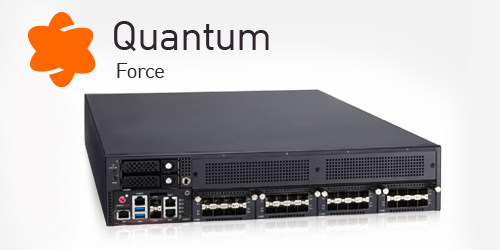Colocation Data Center Definition
Many organizations see in-house data centers or hosted infrastructure as an either-or. However, colocation data centers provide a third option that splits the difference between the two. In a colocation data center, an organization is leasing space from a third-party provider similar to a cloud-based deployment model. However, unlike the cloud, the servers and network infrastructure used by a company are privately owned and operated by that company.
Types of Colocation Facilities
Colocation data centers come in a few different types, including:
- Retail: In a retail colo data center, customers lease space within a data center, such as a rack or fenced-off space within an area.
- Wholesale: A wholesale colo tenant leases a fully-built data center space.
- Hybrid Cloud: A hybrid cloud colo deployment includes a combination of on-premises and outsourced data center solutions.
Benefits of a Colocation Data Center
By deploying IT assets in a colocated data center, an organization can take advantage of a number of benefits compared to an on-premises data center, including:
- Geographic Flexibility: An organization can choose to house their resources at colocation data center facilities anywhere. This allows the company to site its infrastructure closer to users or in a location with better Internet connectivity or reduced vulnerability to natural disasters than a company’s headquarters location.
- Improved Reliability: A colo has the resources necessary to deploy and maintain redundant and resilient systems. This provides a higher level of reliability than many organizations are capable of achieving in-house.
- Lower Personnel Requirements: Operating an in-house data center requires numerous technical staff to deploy, configure, and maintain various data center components. In a colocated data center, the provider can handle many of these tasks, reducing in-house technical personnel requirements.
- Reduced Costs: Colocation DC facilities take advantage of economies of scale. By supporting multiple customers’ data centers within a single facility, that enables customers to build data centers at a lower cost than a fully in-house data center.
- Scalability: As companies grow and pursue digital transformation initiatives, their IT and data center requirements may grow. An in-house data center’s capacity is limited by the availability of space and other resources, but a colocation DC offers room to grow.
Colocation Data Center vs Cloud
In both colocation data centers and cloud environments, an organization’s IT assets are housed in third-party provider’s facilities, which offers improved cost, scalability, and reliability. However, these two data center deployment models have significant differences.
In a colo data center, an organization can own and control its own physical assets, including computers and network hardware. Under this arrangement, the company is wholly responsible for managing and securing its complete infrastructure stack.
In a cloud environment, the underlying physical assets belong to and are managed by the cloud provider. Customers have access to virtual assets, and the breakdown of access and control between the provider and the customer depends on the cloud service model used (PaaS, IaaS, SaaS, etc.). Under this model, the cloud provider and customer share responsibility for managing and securing the infrastructure stack.
Data Center Security with Check Point
A colocated data center enables an organization to take advantage of the benefits of hosted infrastructure while maintaining control over its IT systems. While this provides significant benefits, it also leaves an organization responsible for protecting its systems against cyber threats.
Protecting a data center against modern cyber threats requires data center security solutions that can scale with an organization’s IT infrastructure and offer strong threat prevention, detection, and response. This includes the use of automation, AI, and an integrated security management system to maximize the efficiency and effectiveness of an organization’s security personnel.
Check Point’s data center security solutions offer protection for all types of data centers, including on-premises, colocated, cloud-based, and hybrid deployments. By unifying security across the enterprise, Check Point enables an organization to take advantage of the full benefits of colocated data centers without the risk of additional security complexity or missed threat detections.
To learn more about the benefits of colocated data centers and how to reduce data center costs, check out the Check Point data center security solutions. You’re also welcome to sign up for a free demo of Check Point Maestro to learn how to better scale and secure your corporate data center.


















